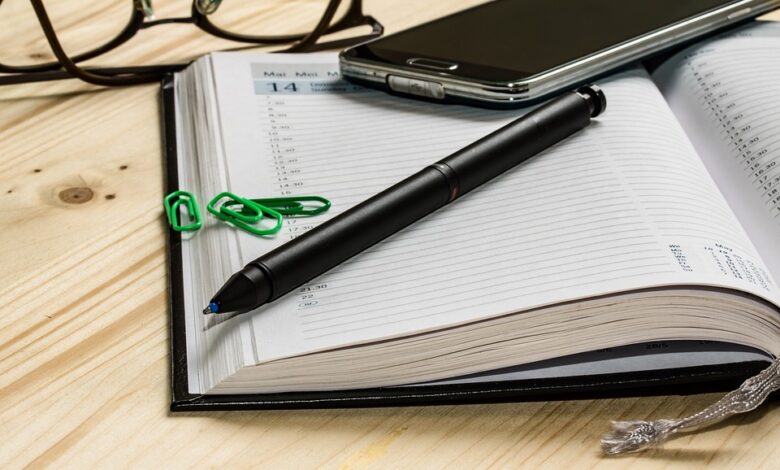
Efficiency 101: How a Calendar Can Optimize Your Productivity
In today’s fast-paced world, the ability to manage our time effectively is more important than ever. With so many demands on our time, it is essential to find ways to increase our productivity. One simple yet effective tool for doing this is the humble calendar. By using a calendar to organise and plan our time, we can significantly improve our efficiency and make the most of every day.
There are many different types of calendars available, from paper planners to digital apps, all of which can be used to help manage our time. Regardless of the format, the key to reaping the full benefits of a calendar lies in how we use it. Here are some tips on how a calendar can optimize your productivity.
Organize Your Time
One of the main advantages of using a calendar is that it allows us to organize our time effectively. By plotting out our days, weeks, and months in advance, we can allocate specific time slots for different tasks or activities. This can help prevent us from feeling overwhelmed by our workload and ensure that we leave ample time for everything that needs to be done.
When using a calendar to organise your time, it is important to be realistic about how much you can achieve in a given period. This means factoring in time for breaks and allowing for unexpected delays or interruptions. By being proactive in scheduling our time, we can avoid feeling swamped and reduce the likelihood of becoming stressed or burnt out.
Prioritize Your Tasks
Another way a calendar can optimize your productivity is by helping you to prioritize your tasks. By assigning deadlines to tasks and sticking to them, you can ensure that important deadlines are not missed. This is particularly useful for those who struggle with time management or tend to procrastinate, as it can provide a clear structure and sense of urgency.
To effectively prioritize your tasks using a calendar, it can be helpful to colour-code or label different types of activities. For example, you might use different colours to indicate work-related tasks, personal errands, or social commitments. By doing this, you can easily see at a glance what your day or week looks like and identify any potential clashes or overcommitments.
Set Goals and Plan Ahead
A well-kept calendar can also help you to set goals and plan ahead. By breaking larger projects or goals down into smaller, manageable tasks and then scheduling these into your calendar, you can make progress towards your goals in a more structured and systematic way. This can help to keep you focused and motivated, as you can see your progress in real-time.
In addition to setting goals for specific tasks or projects, you can also use your calendar to plan ahead for important events or milestones. This might include birthdays, anniversaries, or holidays, as well as significant work deadlines or personal achievements. By planning ahead and allocating time for these events, you can reduce the risk of forgetting or overlooking them.
Avoid Overcommitting and Double-Booking
One of the most common pitfalls of poor time management is overcommitting or double-booking ourselves. This can lead to stress, frustration, and a sense of being constantly rushed and overworked. By utilizing a calendar to plan and manage our time, we can reduce the risk of overcommitting or double-booking ourselves.
One of the key advantages of using a calendar is that it allows us to see all of our commitments and obligations in one place. This makes it easier to identify potential clashes or conflicts and to make informed decisions about how to allocate our time. It can also serve as a visual reminder to be mindful of how much we commit to, helping us to strike a healthier balance between work, leisure, and personal time.
Stay on Track and Manage Your Time Wisely
Lastly, a well-kept calendar can help you to stay on track and manage your time wisely. By keeping a record of your appointments, deadlines, and tasks, you can ensure that you do not overlook anything important or leave anything to the last minute. This can reduce the risk of making mistakes, missing deadlines, or feeling unprepared.
Moreover, by scheduling regular check-ins with your calendar, you can review your progress and adjust your plans or priorities as needed. This can help you to stay flexible and responsive to changing circumstances, and to adapt to unexpected developments without feeling overwhelmed. It can also encourage you to take regular breaks and to maintain a healthy work-life balance.
In conclusion, a calendar is an invaluable tool for optimizing your productivity. By using a calendar to organize your time, prioritize your tasks, set goals and plan ahead, avoid overcommitting, and stay on track, you can make the most of every day and reduce the stress and strain of poor time management. With so many different types of calendars available, there is no excuse not to find a system that works for you. So, why not start today by giving your calendar a little TLC and see how it can help you to achieve your goals and make the most of your time?





